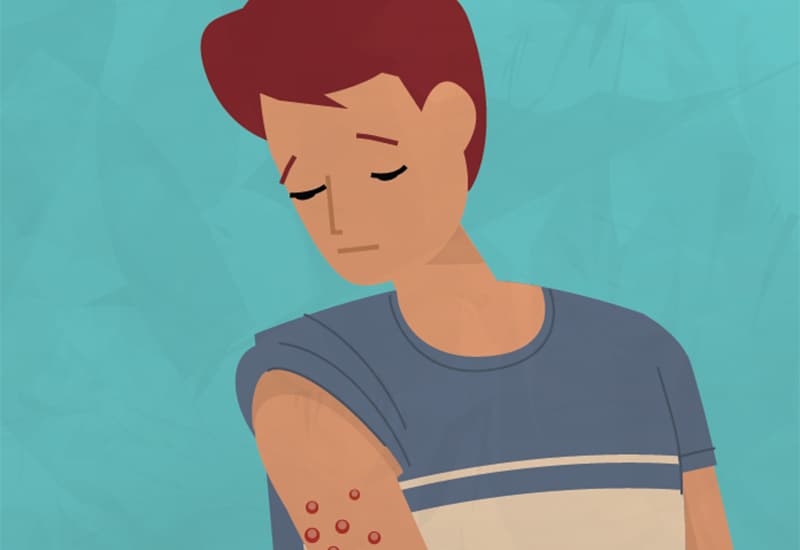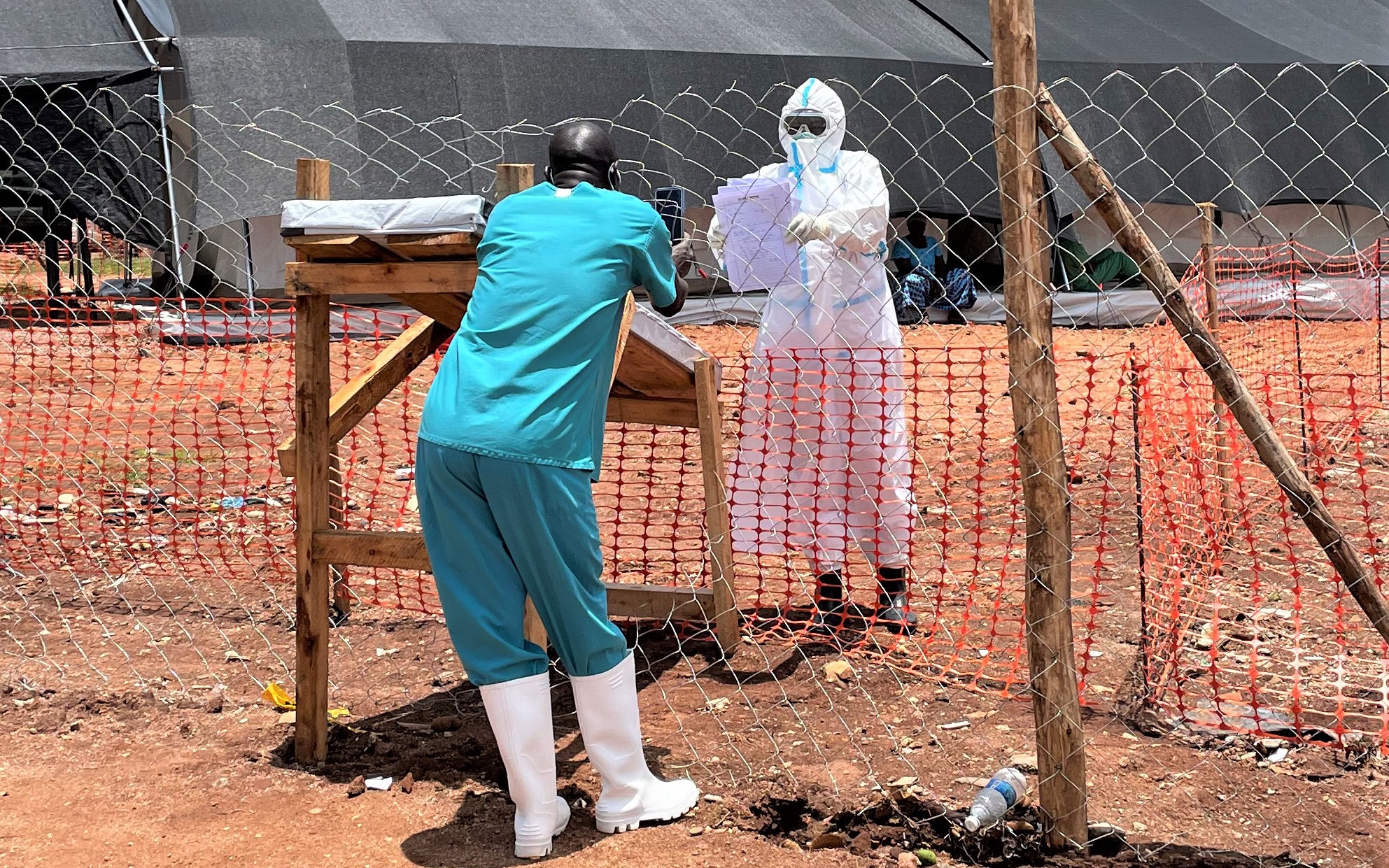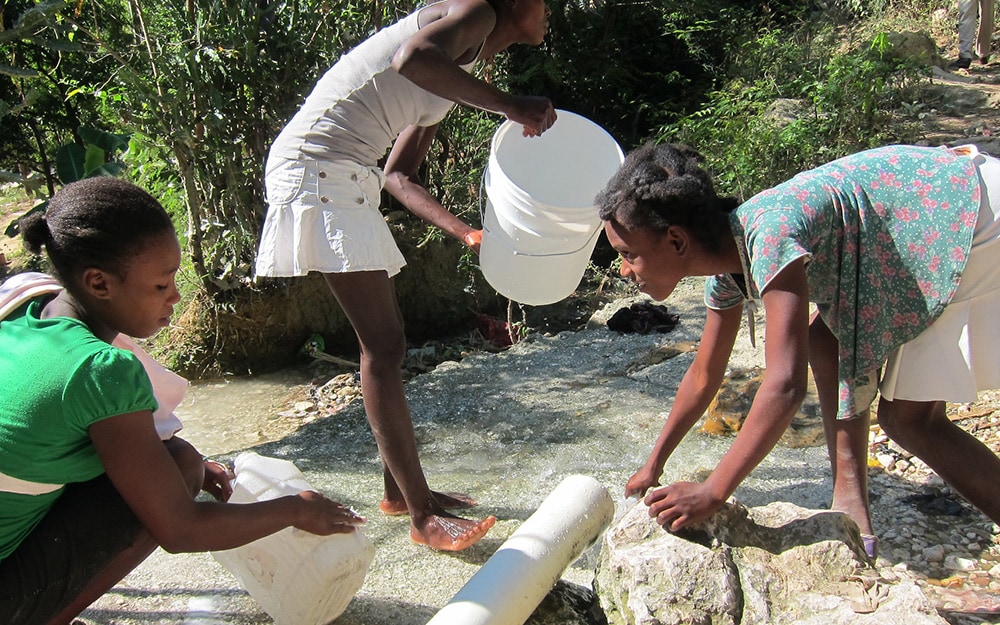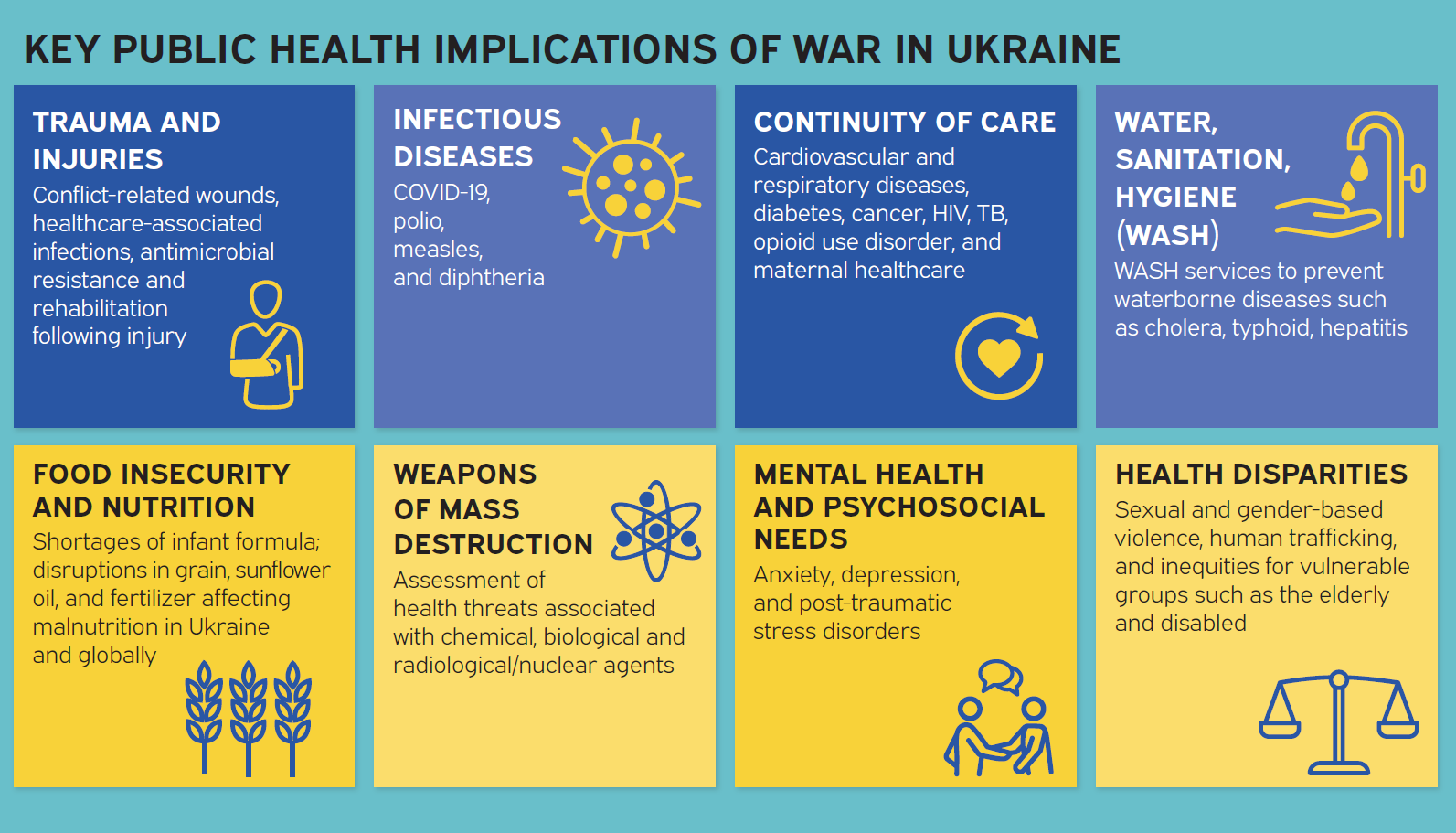Year in Review: Emergency Response
Protecting Americans from infectious disease threats is a top priority, and CDC is working to build the core public health capacities needed to respond to emerging disease outbreaks and prepare for future threats. CDC’s forward-deployed staff overseas are America’s first line of defense to protect Americans’ health when infectious disease outbreaks erupt.
CDC has extensive experience in planning for and responding to infectious disease outbreaks both within and outside of the United States. CDC world-renowned experts in specific disease areas, high consequence pathogens, and numerous cross-cutting programs contribute to the worldwide success in responding to emergencies. These subject matter experts provide essential global leadership and support during emergency responses. In addition to providing critical scientific knowledge to the COVID-19 response, CDC experts also supported global outbreak responses to Ebola, mpox, and several humanitarian crises in 2022.
Mpox Emergency Response
As countries around the world respond to the current 2022 outbreak, CDC worked in collaboration with other U.S. government agencies, international governments, and international partners to prevent, detect, and respond to mpox. CDC’s support for mpox-endemic and non-endemic countries included strengthening laboratory diagnostic capacity, enhanced surveillance, ecological investigations, and vaccine research.

Ebola Emergency Response in Uganda
Working closely with the Ugandan Ministry of Health, neighboring countries, the World Health Organization, non-governmental organizations, and interagency partners, CDC supported the global emergency response to the 2022 Ebola outbreak in Uganda. CDC deployed U.S.-based CDC staff and CDC staff already in Uganda to provide response expertise and support in surveillance, epidemiology, laboratory, ecological investigations, infection prevention control, safety and security, border health, management and operations, and communications.

Ukraine Humanitarian Response
As countries around the world respond to the current 2022 outbreak, CDC worked in collaboration with other U.S. government agencies, international governments, and international partners to prevent, detect, and respond to mpox. CDC’s support for mpox-endemic and non-endemic countries included strengthening laboratory diagnostic capacity, enhanced surveillance, ecological investigations, and vaccine research.
“The COVID-19 pandemic taught us that health crises don’t happen in isolation – they have ripple effects across the globe. By engaging in response and recovery efforts alongside longstanding partners, CDC can help reduce illness and death in Ukraine while bolstering global health security moving forward.”
Haiti Cholera Response
After three years without a reported cholera case and six months into the World Health Organization’s process to declare the country cholera free, cholera cases were confirmed among children in the largest informal settlement in Haiti in October 2022. Cholera cases spread to nearly all departments of the country by the end of 2022. CDC led the interagency U.S. response, in close collaboration with the government of Haiti, to provide technical assistance and support in surveillance/laboratory capacity, vaccination, treatment and case management, risk communication and community engagement, and water, sanitation and hygiene.

Operation Allies Welcome – Afghanistan
CDC worked with other government agencies in determining precautions needed to prevent the spread of COVID-19 and other infectious diseases during this resettlement process for Afghans coming to the United States by providing technical assistance to the U.S. Department of Homeland Security and the U.S. Department of Defense in close coordination with local and state public health authorities and resettlement agencies.
